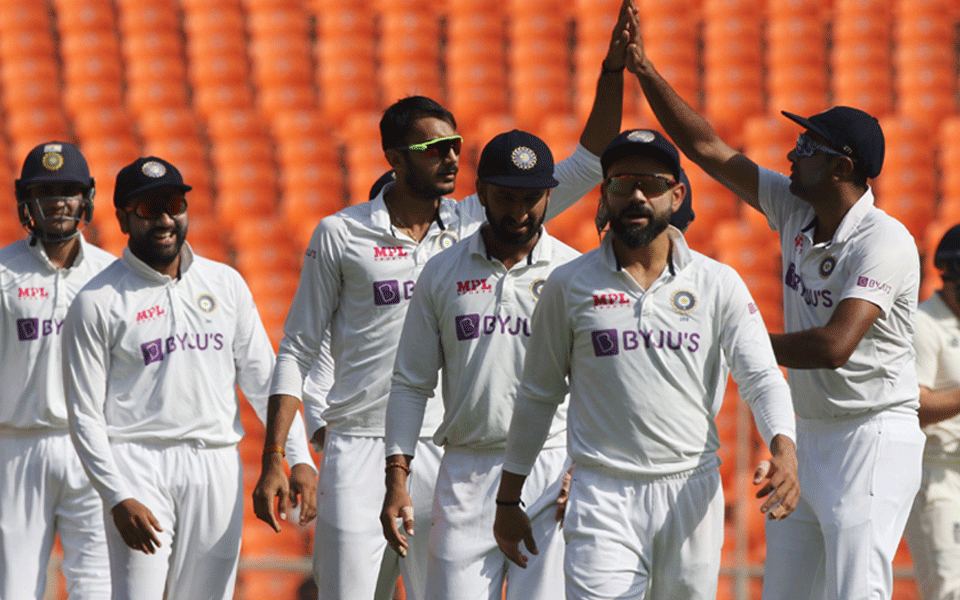Dubai: India and New Zealand will be adjudged joint winners of the inaugural World Test Championship if their final clash in Southampton ends in a draw or tie, the International Cricket Council (ICC) said on Friday.
According to the playing conditions unveiled by the global body, "a draw or a tie will see both teams crowned as joint winners..."
The ICC has also allocated a Reserve Day to make up for any lost time during the regular days of the Final, scheduled to be played from 18 to 22 June, with 23 June set aside as the Reserve Day.
"Both of these decisions were made in June 2018, prior to the commencement of the ICC World Test Championship."
The Reserve Day has been scheduled to ensure five full days of play, and it will only be used if lost playing time cannot be recovered through the normal provisions for each day.
"There will be no additional day's play if a positive result is not achieved after five full days of play and the match will be declared a draw in such a scenario," the ICC stated.
In the event of time being lost during the match, the ICC match referee will regularly update the teams and media about the way in which the Reserve Day may be used.
The final decision on whether the Reserve Day needs to be used will be announced at the scheduled start of the last hour on the fifth day.
While India play at home with SG Test and New Zealand use Kookaburra at home, the final will be played with Grade 1 Dukes balls.
The final will also feature the implementation of three changes to international playing conditions, which were brought into effect with the ongoing World Cup Super League series between Bangladesh and Sri Lanka:
Short Runs -- The Third Umpire will automatically review any call of a 'short run' by the on-field umpire and communicate the decision prior to the next ball being bowled.
Player Reviews -- The fielding captain or the dismissed batsman will be able confirm with the umpire whether a genuine attempt has been made to play the ball prior to deciding whether to initiate a review for LBW.
DRS Reviews -- For LBW reviews, the height margin of the wicket zone has been lifted to the top of the stumps to ensure the same Umpire's Call margin around the stumps for both height and width.
Let the Truth be known. If you read VB and like VB, please be a VB Supporter and Help us deliver the Truth to one and all.
Mangaluru: Days after flight operations to Gulf destinations from the coastal city were disrupted, the first service to Oman’s capital Muscat is set to resume on Tuesday, March 3.
According to officials, Air India Express flight IX817 from Mangaluru to Muscat will depart Mangaluru airport at 9:20 am. The return service, flight IX818 on the Muscat–Mangaluru sector, is scheduled to arrive in Mangaluru at 5:30 pm on the same day.
It may be noted that flights between Mangaluru and Muscat were being resumed after a long gap and were initially scheduled to operate on Sunday, March 1. However, the service was cancelled due to airspace restrictions. The flight is now set to operate on Tuesday, marking the resumption of the Mangaluru–Muscat sector.





